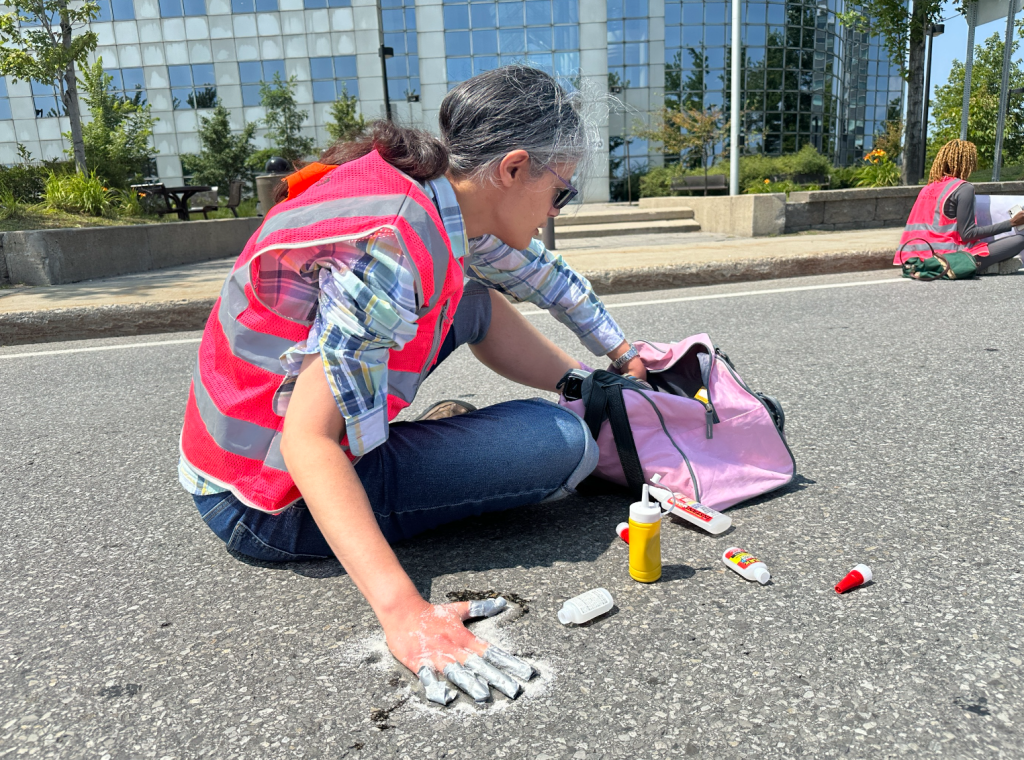Boycott of U of T growing amid hiring scandal

Posted May 20, 2021 5:00 pm.
Last Updated May 20, 2021 6:37 pm.
Multiple prominent international, national and local organizations have suspended their relationships with the University of Toronto over a hiring scandal in the Faculty of Law’s International Human Rights Program (IHRP).
The hiring of a preferred candidate, selected by a committee, was suddenly terminated.
The organizations that have suspended their relationships with U of T believe that the hire was terminated because a donor to the school raised concerns about the candidate’s academic work on human rights in Israel and Palestine.
The Canadian Association of University Teachers (CAUT) Council imposed a rare censure against the school in April following an investigation, which concluded that the university administration had violated academic freedom and other principles that are fundamental to higher education.
CAUT called the decision not to proceed with the hiring was “politically motivated.”
The sanction means that the group’s 72,000 members across Canada are asked not to accept appointments or speaking engagements at the school.
“[What happened] is a violation of institutional autonomy but it’s also censorship for the conduct of academic research,” CAUT Executive Director David Robinson said.
This week, Amnesty International announced it was also pausing its partnership with the U of T, stating it is “greatly concerned about the sequence of events” that transpired.
In addition, Human Rights Watch has spoken out against the school, saying this case “speaks to the core of what academic freedom means and the principle that no country should be off limits for critique of its rights record. Human Rights Watch’s academic partnership with the University of Toronto law school needs to be based on upholding these values for it to continue.”
Controversy and review
The concerns arose last fall around the hiring process for a new director of the U of T’s International Human Rights Program.
A preferred candidate, Dr. Valentina Azarova, was unanimously chosen by the hiring committee as “strong, unanimous and enthusiastic first choice,” but the hiring process was suddenly terminated. An allegation was made that outside influence was the cause.
Dr. Azarova is an international lawyer and human rights scholar who has published extensively on international law in the context of Israel and Palestine.
In December, the school commissioned a review of the situation.
The report conducted by former Supreme Court Justice Thomas Albert Cromwell concluded that the decision not to hire Dr. Azarova was made due to immigration issues as the German national would not have been able to acquire a work permit on time and wouldn’t have been able to start on the timeline stipulated by university.
However, many aren’t buying it.
“It doesn’t pass the smell test,” Robinson said. “Suddenly in an hour or two it all comes off the rails and the only thing that’s changed in that period is an influential donor raised concerns with the university administration.”
“This case raises some really tricky and delicate questions about the role of outside influences in terms of what universities and colleges do. In this particular case, a donor intervened to stop the hiring of a faculty member because of her research into Israel and Palestine.”
In a statement, Amnesty International said “we are unable to take at face value the claim that the hire was frozen solely due to immigration issues, rather than external influence from a major university donor critical of Dr. Azarova’s academic work on Israel and Palestine.”
CityNews sent questions and requested an interview with the U of T.
A spokesperson declined, responding only with this statement: “We are aware of the letter from Amnesty International. We regret that they are pausing their relationship with the University. We have enjoyed a highly productive relationship with Amnesty International and very much hope to resume this relationship in the future.”
Further questions raised
Robinson notes though the report seemingly clears the university overall, it actually shines a light on many troubling issues.
“At the high level, it read exoneration but when you read the details you think, ‘He’s guilty’,” he said.
The report states that an inquiry was made by an alumnus on Sept. 4 to the Assistant Vice President (AVP) and “the Alumnus raised the appointment of the new Director of the IHRP.”
Justice Cromwell’s report said the alumnus had indicated to the Assistant Vice President that if the appointment of the preferred candidate was made, it would be “controversial and could cause reputational harm to the University.” The AVP also indicated the alumnus indicated that “as a judge, he could not become involved.”
The review also details that “Selection Committee Member 1 recalls that the Dean said ‘it [i.e. the Preferred Candidate’s work on Israel/Palestine] is an issue’”.
“It shows a dean that was completely uninterested in the hiring process,” Robinson said.
Robinson said the thing that changed was a donor calling. Once that happened, the dean “sprang into action and within 48 hours, the hiring process had been terminated.”
“A dean overrode the decision of a hiring committee based on dubious grounds,” said Robinson.
That selection committee member later resigned shortly after, citing the dean’s decision to “overrule the hiring committee’s decision” as the reason.
Cromwell’s report specifically detailed that “there were several instances in which the confidentiality of the search process was not respected” and “there is no formal policy speaking expressly to the question of if and to what extent alumni and donors may appropriately be involved in the University’s hiring decisions.”
The President of U of T put out a statement after the report was published.
“While those involved in the search acted in good faith, we can all agree that certain things should have been done differently,” Meric Gertler said. “At the same time, I would like to emphasize my confidence in the power of the community’s shared values and the goodwill.”
Fallout continues
The censure against the university has led to a slew of cancelled speaking engagements there, including one involving the former Governor General of Canada Michaëlle Jean.
As well, many firms have delisted the University of Toronto for clinical partnerships pending the resolution of this matter.
Lawyer Saron Gebresellassi tells CityNews, in the meantime, her Toronto firm is choosing to work with the University of Ottawa instead.
“I’m looking for leadership at the university… to know what is the vision here? The damage just accumulates day after day,” she said.
‘Black eye’ on the university
“University administration was hoping it would be business as usual but the reality is business is not as usual and the University of Toronto has a significant black eye here,” Robinson said.
He said the only course of action that could redeem the school’s reputation would be to reverse their decision and hire Dr. Azarova.
Currently, the role of director of the U of T’s International Human Rights Program remains vacant.



